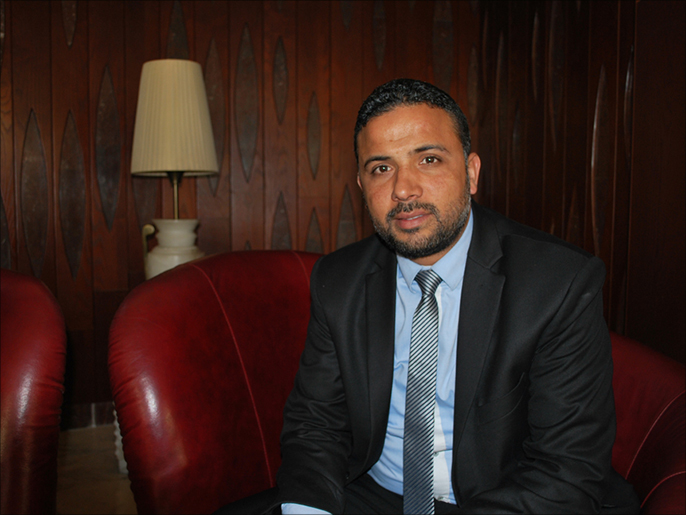On Tuesday, 4 Tunisian parties announced their refusal to suspend the constitution or extend the work of exceptional measures without horizon, warning that this situation reinforces individual rule and threatens the return of tyranny.
Tunisia has been suffering from a severe political crisis since its president, Kais Saied, decided last July 25 to dismiss Prime Minister Hisham Al-Mashishi, provided that he assume the executive authority with the help of a government whose president is appointed, in addition to freezing the powers of Parliament, lifting the immunity of deputies, and being headed by the Public Prosecution.
Yesterday, Tuesday, the general secretaries of the "Democratic Current" parties (Social Democratic: 22 deputies out of 217), "Afaq Tounes" (liberal: two deputies), "Democratic Bloc for Labor and Freedoms" (Social Democratic: Without Representatives) and "The Republican" met (Center: Without Representatives) with the Secretary-General of the Labor Union (the largest union organization) Noureddine Taboubi at the union headquarters in the capital, according to a statement by the Republican Party.
very worried
The four parties expressed, according to the statement, their "deep concern about the continued ambiguity and pushing the situation towards further escalation and tension, at a time when the country needs to deal calmly with the repercussions of the crisis, which is now threatening state institutions with complete paralysis."
And she stated her "rejection of all explicit and convincing calls to suspend the constitution or to extend the work of exceptional measures without horizon," warning that this situation "consolidates individual rule and threatens the return of tyranny."
And she called for "accelerating the assignment of a prime minister to confront the priority economic and financial files, and to cut off all the negative aspects of the previous administration of governance institutions."
And on Monday, Said announced, in a speech from the state of Sidi Bouzid (center), that "exceptional measures will continue, and transitional provisions have been put in place (without clarification), while preserving everything stated in the constitution," referring to the start of preparations for the enactment of laws. Transition and amendment of the electoral law.
The Ennahda movement, which has the largest parliamentary bloc with 53 deputies, announced in a statement yesterday, Tuesday, its rejection of Said's direction to approve "transitional provisions", considering that he is determined to abolish the constitution, and warning against the "disintegration of the state" if its exceptional measures continue.
The majority of parties rejected these measures, and some considered them a "coup against the constitution", while other parties supported them, seeing them as a "correction of the course", in light of the political, economic and health crises (the Corona pandemic).
Al-Marzouki considered that President Saeed is upside down, and he can only be described as such (Reuters)
The fall of legitimacy
For his part, former Tunisian President Moncef Marzouki said that Tunisian President Kais Saied's announcement of the existence of transitional provisions is a notification of the end of the constitution, which means the president's legitimacy will fall permanently and he must be removed and tried, according to him.
This came in a speech delivered by Marzouki, yesterday evening, Tuesday, to the Tunisian people, which was broadcast on his official page on Facebook.
Al-Marzouki said, "Saeed's talk about setting transitional provisions means canceling the constitution, which means going in the enactment of custom-made laws.
Al-Marzouki reiterated that "Said is upside down and can only be described as that, and his legitimacy is eroded and will end, and the removal of the man and his referral to trial becomes a serious issue."
MP Seif El-Din Makhlouf from the Al-Karama Coalition (Al-Jazeera)
Imprisonment and fears
In a related context, a lawyer and an official source said that a Tunisian military judge ordered, on Tuesday, the imprisonment of two deputies from the Dignity Coalition opposing President Said.
The Tunisian president had lifted the immunity of parliamentarians, froze his work, and dismissed the prime minister in exceptional measures that his opponents described as a coup, while he said that they were necessary to save the country from collapse and disintegration.
A judge in the military court issued a prison card for Saif Al-Din Makhlouf and Nidal Al-Saudi, leaders of the Al-Karama Coalition.
Lawyer Inas Harath said that the judge ordered the imprisonment of the Saudi for allegedly assaulting security men at Tunis-Carthage airport months ago.
A statement by the military judiciary said that Makhlouf threatened the military judges while he was in court.
The private news website Babnat reported that the military investigative judge issued a prison deposit card on Tuesday evening against lawyer and representative of the Karama coalition, Seif El-Din Makhlouf, and set a date for the current September 30 to question him in a case related to a military judge that he filed.
If Al-Saudi and Makhlouf are imprisoned, the number of imprisoned MPs will rise to 5. Saeed defended his intervention, rejected the accusations of the coup, and pledged to uphold rights.
Rights groups demanded the release of parliament member Yassin al-Ayari, and criticized the use of military courts to try civilians.
It also expressed concern about the travel ban on dozens of people.

